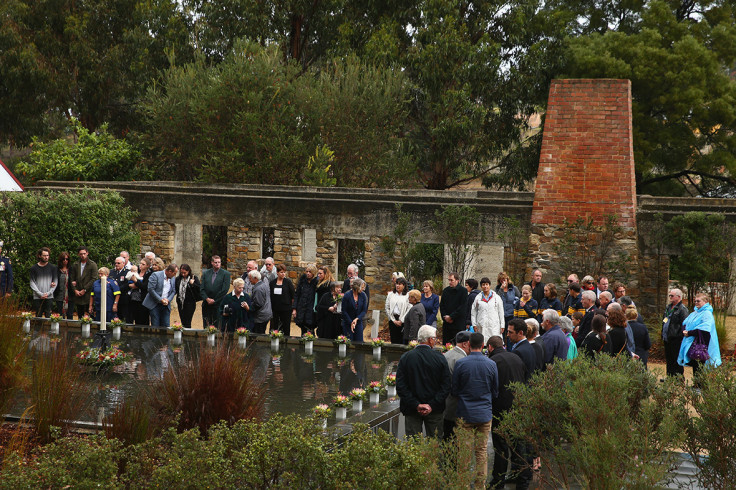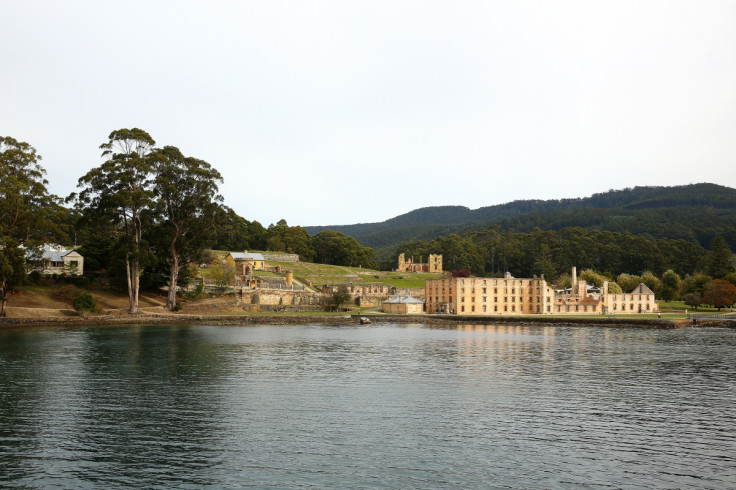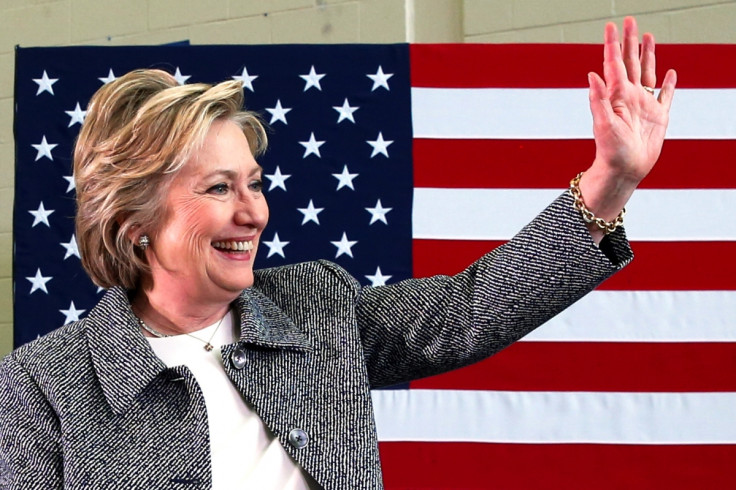Port Arthur massacre 20 years on: How the Tasmania shooting transformed Australia's gun laws

Twenty years ago, 28-year-old Martin Bryant walked into a cafe near the historic penal colony at Port Arthur in Tasmania, bought lunch and sat outside the decking to eat. When he had finished, he pulled a rifle from his bag, aimed from the hip and began to shoot. In minutes, he had killed 20 people in the café. By the time he was apprehended the following morning, 35 people had been killed and 23 wounded in one of the worst mass-murders in history by a lone gunman.
"He was coming up behind my daughter and he had the gun up and he was shooting people behind me," survivor Carolyn Loughton told Australia's ABC news. "She stood up like Jesus on the cross, with her arms out and this look of absolute sheer terror on her face." Loughton then pushed her 15-year-old daughter Sarah to the floor, whispering to her to stay down. It wasn't until Carolyn was being treated for a gunshot wound to the shoulder in hospital, when she was told Sarah had been killed.
After obtaining a semi-automatic weapon without a licence, Bryant carried out one of the deadliest mass shootings to date just weeks after the Dunblane tragedy in Scotland.
Tighter controls
After the Port Arthur shootings, gun control activists campaigned for tighter controls and uniform firearms legislation across Australia. Pro-gun groups argued mass killings like Port Arthur were the result of the misuse of firearms, rather than the guns themselves - akin to arguments proposed by gun enthusiasts in the States.
Ironically, by the evening of the 28 April 1996, the day of the Port Arthur massacre, Australia's leaders were already discussing stricter gun legislation. "Later that day the premier of Tasmania, Tony Rundle, rang me," former Australian prime minister John Howard told the Sydney Morning Herald. "Even at that early stage we talked about the possibility of tightening the gun laws."
Before Port Arthur, most laws around gun control depended on the state - there were different rules about licensing, background checks and the types of guns people could use. In response to the shooting, the Australian government brought in sweeping changes to Australia's gun legislation - working towards engaging all Australian states and territories to enact the same laws. Despite opposition from conservative state governments and gun-owners, new legislation was rolled in across Australia.

Each state and territory would introduce and enforce a thorough licensing and registration system which required gun-owners to have a reason for owning a weapon that did not include self-defence, such as farming. There would be a ban on firearms that were fully automatic, semi-automatic, pump-action and self-loading. A mandatory "cooling off" period of 28 days would be implemented before a licence was approved, alongside compulsory safety courses. There would also be limits on who could sell or supply firearms legally and more secure storage rules.
A gun buy-back scheme was also introduced that allowed people to surrender newly-banned weapons. This led to more than 700,000 weapons - banned and legal - being surrendered and melted down.
Under threat
Twenty years on, however, some have said Australia's gun laws are at risk of being undermined, in part, by the influence of the ever-influential gun lobby.
"The pro-gun lobby has succeeded in watering down the laws in several states. Weakening the rules on pistols so that unlicensed shooters can walk into a club and shoot without any waiting period for background checks has resulted in at least one homicide in NSW," Rebecca Peters of the University of Sydney and Chris Cunneen of the University of South Wales wrote in the Conversation.
"And the post-Port Arthur ban on rapid-fire weapons is under threat from the push to legalise the Adler A110 shotgun. While it is not technically semi-automatic, it can still fire eight rounds in as many seconds. This is a dangerous trend for a country that has some of the best gun laws in the world."
According to the Australian Associated Press, nearly 4,000 Adler A110 shotguns have been imported into the states of Victoria, New South Wales and Queensland.

Gun law model
On the anniversary of Port Arthur, there is debate over the effectiveness of Australia's gun laws and whether the United States should introduce a similar model. There have been no mass shootings in Australia since firearms laws were tightened and the overall homicide rate involving guns have also gone down, as have gun-related suicides.
Comparatively, there were more than 370 mass shootings in the US in 2015, according to the Mass Shooting Tracker. A mass shooting is defined as a single shooting incident which kills four or more people, including the perpetrator. According to Gunpolicy.org, a database run by the University of Sydney, Americans are 24 times as likely to die in a firearms-related homicide.
Constrained by the extremely influential US gun lobby, American politicians calling for greater gun control are fighting a doomed battle. The National Rifle Association is one of the most powerful special interest lobbying groups in the States with a large and engaged political membership, spending around $3 million a year to influence gun policy.
Australia's success in curbing mass shootings has been noted by the US, notably, by Democratic presidential candidate Hillary Clinton who said Australia's gun buy-back scheme was something to consider. But Philip Alder, director of Gunpolicy.org and an associate professor, argues public opinion would likely scupper a similar scheme in the US.
"Such confiscation of private property, compensated or otherwise, is not the American way," Alder wrote in an article published in January. "Instead, President Obama is constrained to baby steps – forcing a few gun sellers to perform character checks. In Asia-Pacific such vetting has always been routine. In America, anyone who wishes to avoid an FBI background check can still legally make an unrecorded purchase from a private seller, commonly after meeting online.
"Not even the White House pretends that Obama's latest moves will make much of a dent in America's annual toll of 30,000 gun deaths."
© Copyright IBTimes 2025. All rights reserved.






















